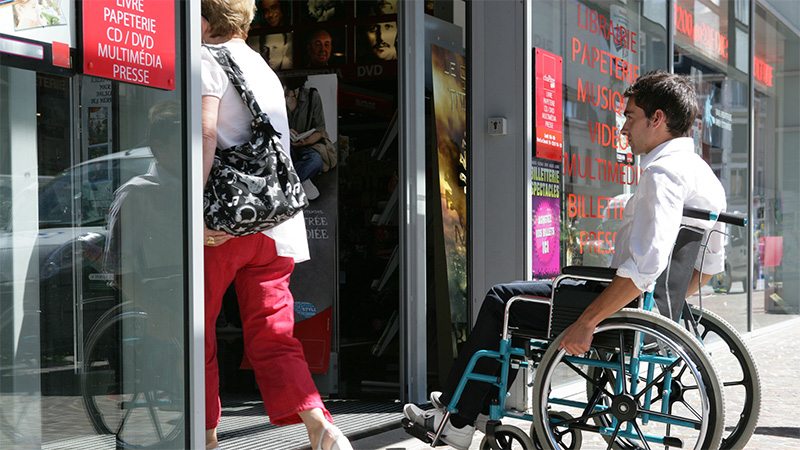
Improving building accessibility and the independence of individuals within the built environment is a major challenge in achieving sustainable buildings and cities.
To guide the industry in this area and contribute to the development of reliable solutions, the CSTB is launching the first certification of compliance and performance of building systems: CSTB-certified “Products for accessibility and autonomy”.
This new certification, developed by the CSTB with the concerned stakeholders, aims to enable public and private owners of residential or commercial buildings to identify solutions compliant with regulations and key user needs (strength, ergonomics, safety, extensibility, etc.). For manufacturers it provides the structuring benchmark for designing solutions for the future that fully address the challenges of accessibility in the built environment and the autonomy of users.
First certification of building accessibility and autonomous living products
In 2040, one in six people in France will be over age 75. This means that more focus must be given to the needs of persons with reduced mobility. Building accessibility has become a public priority, as illustrated in the French “Disability Act” of February 11, 2005. This subject is currently the topic of the Salons Santé-Autonomie (May 19–21, Paris-Porte de Versailles), with a focus on “Great age and Disability” and featuring solutions and equipment for healthier aging and better support when there is loss of independence, whether in institutions or at home.
To guide the industry (manufacturers, public and private contracting authorities, specifiers, project owners and users), the CSTB has developed a specific quality mark: CSTB-certified “Products for accessibility and autonomy”.
Developed in collaboration with all stakeholders (institutions, professionals and users), this certification attests to the technical maturity of products, their regulatory compliance and their approach to additional basic requirements for users, assessed using a unique classification called SESAAME CSTB:
- S: Strength of product when used
- E: Ergonomics of product when used
- S: Safety of product when used
- AA: Accessibility/Autonomy – regulatory compliance
- M: Maintenance and after-sales service of product
- E: Extensibility based on user needs
Example of marking for a portable manual access ramp:
S1*E2SAA2M2E0 CSTB
Certification to one day cover all products for accessibility and autonomous living
CSTB-certified “Products for accessibility and autonomy” applies to all types of structures: public and private buildings, both residential and nonresidential.
It currently applies to access ramps, which are usually the first solutions implemented for accessibility and autonomy (portable ramps, permanently anchored ramps with manual or motorized retraction, unattached to walls). Starting at the end of 2015, it will cover support bars and other products that facilitate accessibility to buildings and the independence of their users.
Response in line with the expectations of stakeholders
Beyond the technical requirements set forth in the reference system, the certification launched by the CSTB is part of a regular and in-depth audit process. It involves:
- Annual audits of the manufacturing process, production monitoring, final inspections and correction of noncompliances;
- Annual testing in CSTB laboratories of products sampled at the factory, as specified in the reference system.
This makes it a key tool for:
- Project owners, specifiers and users who then benefit from a reliable mark to identify and select, with complete confidence, sustainable solutions that meet their expectations and comply with regulations;
- Manufacturers, who can use the reference system as a framework for developing innovative and effective solutions;
- Public sector buyers, who can now officially attest, through an independent third party, compliance of the chosen solutions with accessibility regulations and no longer need to provide additional proof required in public calls for tenders.
- Read more about CSTB-certified “Products for accessibility and independence”
